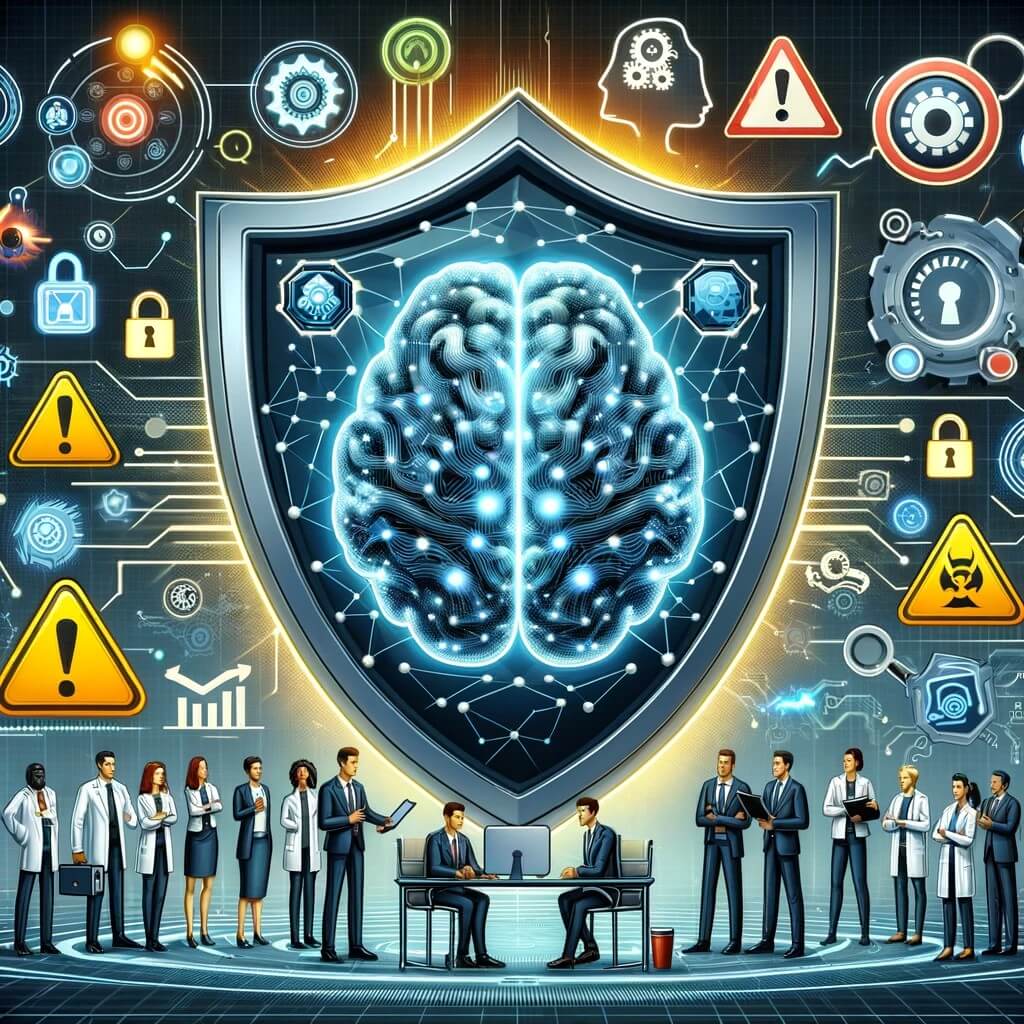In the ever-evolving landscape of artificial intelligence, a new specter haunts the collective imagination— the fear of an AI Catastrophe. Just over a year ago, OpenAI unleashed ChatGPT, sparking a frenzy of excitement in the AI realm. Yet, the conversation has swiftly shifted from concerns over job displacement to the unsettling prospect of superintelligent entities breaking free from human control. As we stand on the precipice of unprecedented technological advancements, the need to prevent an AI apocalypse looms larger than ever.
The rise of generative AI – Augmentation or replacement?
The first battleground in the quest to avert an AI Catastrophe revolves around the clash between techno-optimists and techno-skeptics. With generative AI promising advancements in various sectors, from healthcare to telemedicine, the mainstream narrative leans towards augmentation rather than replacement of human jobs. The prevailing belief is that automation of routine tasks will liberate human potential for more creative endeavors. But, this transformative shift necessitates lifelong learning, making continuous education not just a job market requirement but also a gateway to an expanding array of online services.
Yet, as the shadows of AI grow longer, concerns have shifted from the immediate impact on employment to the specter of artificial general intelligence. The ominous notion of a superintelligence, capable of recursive self-improvement and autonomous goal-setting, sends shivers through the tech community. Former Google CEO Eric Schmidt’s warning about the potential evolution of a “truly superhuman expert” highlights the gravity of the situation.
Navigating the turmoil – OpenAI’s struggle and the road ahead
The recent turbulence at OpenAI serves as a microcosm of the larger challenges we face. In a shocking turn of events, the board briefly ousted CEO Sam Altman over concerns that AI could lead to humanity’s extinction. Although Altman was swiftly reinstated, the incident underscores the rapid pace at which ostensibly beneficial technologies can transform into existential risks.
The heart of the matter lies in the approach to AI development. Calls for aligning AI with human goals and values echo louder, presenting two potential paths. The first involves restricting the availability and sales of potentially harmful AI-based products, akin to regulations imposed on technologies like autonomous cars and facial recognition. Yet, the ambiguity in defining harm and the difficulty in holding entities accountable pose significant challenges.
The second approach proposes limiting the development of dangerous AI products altogether. Yet, curbing demand proves intricate in societies where competitive forces and the thirst for technological innovation dominate. OpenAI’s predicament exemplifies the delicate balance between commercial interests, geopolitical pressures, and the imperative to exercise caution.
Averting the impending AI catastrophe
In the face of this looming AI Catastrophe, the conclusion is stark—mere regulation is insufficient. The narrative must shift, introducing concepts like neo-Luddism and redistribution into the public discourse. Neo-Luddites question why affluent societies, already producing more than enough for comfortable living, prioritize relentless GDP growth. The lack of a fair distribution of wealth and income, they argue, perpetuates a system where only the privileged benefit from technological progress.
As we grapple with the paradox of technology being a means to an end, the urgency to develop a political and intellectual vocabulary becomes clear. Navigating the shadows of AI requires more than regulations; it demands a profound societal introspection. Are we ready to confront the deeper questions about the purpose and impact of technology, or are we hurtling towards an AI-induced apocalypse, blinded by the relentless pursuit of innovation? The answers may well determine the fate of humanity in this ever-evolving dance with artificial intelligence.




